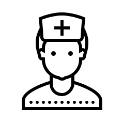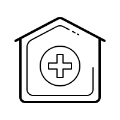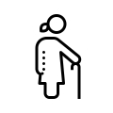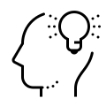
Studying Nursing in Germany has a lot of benefits for Indian students.
Germany has an excellent health care system and is one of the most popular destinations for medical students and professionals. Ranked as the best in Europe, Germany’s health care system combined with quality education makes it a great learning experience for those pursuing a Nursing course in Germany.
With a Nursing Ausbildung in Germany or vocational programme, you can earn while you learn, receive top-tier medical training recognised internationally, and step straight into a guaranteed job in one of the healthiest nations in Europe, all without paying tuition fees. Germany is also a great place to live and work, offering many career opportunities and stable Nursing jobs in Germany. A growing number of Indian students are choosing to pursue their nursing education in Germany due to its high quality of life, excellent job prospects, and affordable tuition fees.
This is your golden opportunity for a future with respect, stability, and global recognition if you are a 12th-grade student or a recent graduate seeking international exposure.
What are the requisites?

Registered nurse

Academic Qualifications

Location & Duration
Employment Opportunities
The applicant will work as a nurse in:
 Cardiology
Cardiology Neurology
Neurology Orthopaedics
Orthopaedics Nursing in aged care
Nursing in aged care Psychosomatics
Psychosomatics
How much does one make by working as a Nurse in Germany?
Usually, a scholar enrolled in a nursing course in Germany receives an average salary of 2200–3100 Euros per month during the Nursing Ausbildung in Germany. Working overtime, on Sundays, and night shifts are paid extra. However, the salary may vary depending on one’s German language proficiency.
Nurses with full licenses and B1-level German typically earn around 2200 Euros, while those with B2-level proficiency can expect to earn between 2900–3100 Euros. These figures reflect the competitive pay scale for Nursing jobs in Germany, making it an attractive option for international students and professionals.

Would you like to work as a Registered Nurse in Germany?
What are the requirements for International Students for Nursing in Germany?
The eligibility criteria for aspirants are:
- High School Certificates
- Certificates of professional experience
- Certificate of Professional Good Standing
- B2 level of proficiency in the German language
- Certificate of good health & Police clearance certificate
- Official transcripts of recognized Universities: Nursing Diploma/Degree including theory/practice modules The nursing license of the applicant's home country
Application Process
Preparation Phase
- Pre-screening of candidate's education and certificates.
- Experience gained over the years.
- Shortlisting of the German Healthcare Institutions.
- Application to these Institutions.
- Interview with the shortlisted German Healthcare Institutions.
- Elementary German language Course Certificates.
- Video conferencing call with the German HR team after an ID check.
- Declaration of interest and issuing of an employment contract.
Pre-Employment Phase
- Apply for an employment/work visa to relocate to Germany.
- Start your work as an assistant nurse on a reduced pay-scale.
- Preparation of Equivalence Exam including German terminology.
- Take the equivalence exam.
- Apply for a license to practice and become a qualified nurse in Germany.
Settlement Phase
- Begin employment as a qualified nurse on a full salary.
- On completion of 3 years of job, apply for permanent residence in Germany.
Timeline for Application of Work Permit

Let’s connect

Document Preparation

Prepare German language, B1/B2 (6 to 8 months)

Apply for Anerkennung (Equivalency of degree/license) (processing time=12 to 15 weeks)

Arrival of Student Contract (within 2-3 weeks)

Work visa application (4-5 weeks)

Start working in Germany
Frequently asked questions
Do I need to have a language certificate for undertaking Nursing in Germany?
Yes, a minimum of a B1 level German Certificate is required.
What is the job scope?
Nursing job opportunities will be available in the fields like;
- Cardiology
- Neurology
- Orthopedics
- Nursing in aged care
- Psychosomatics


